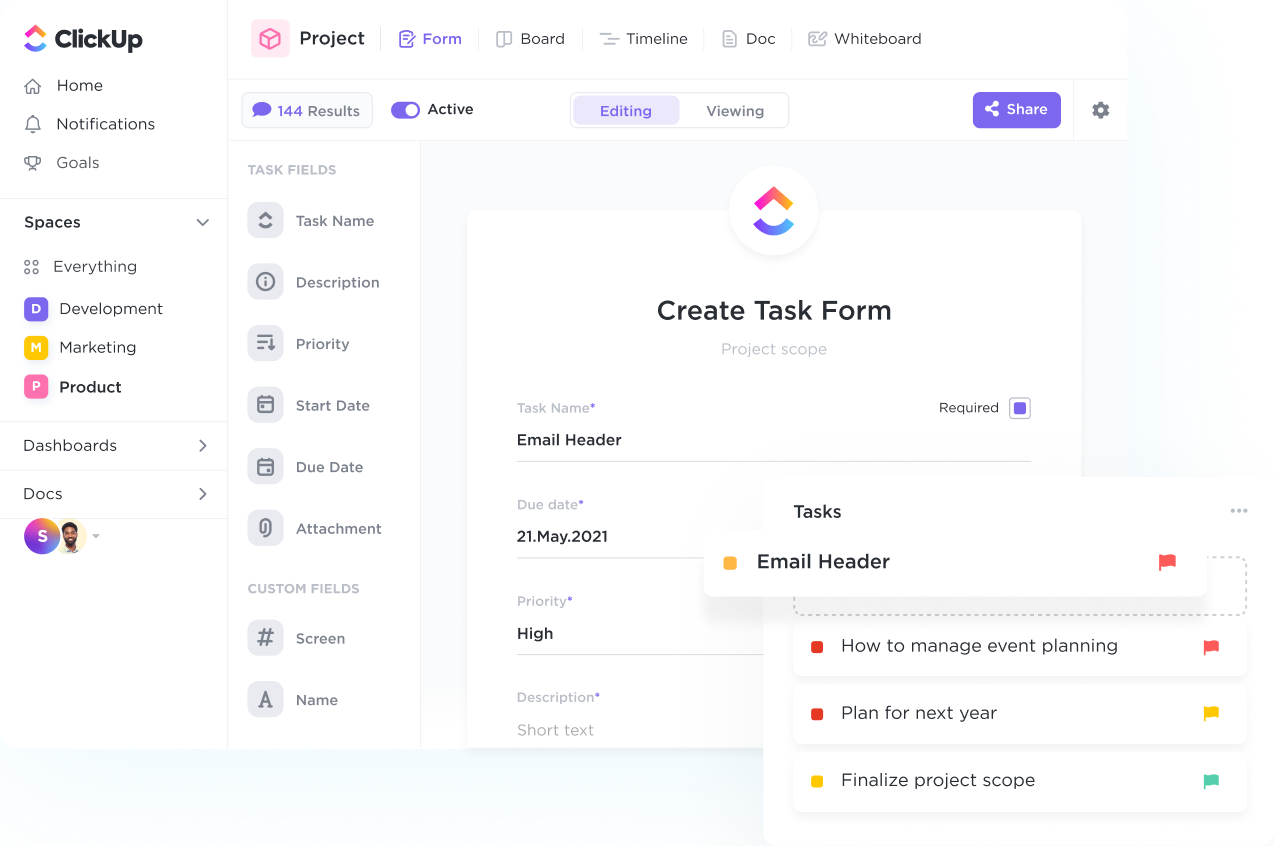CRM Views
See client relationships at a glance.
Manage everything from sales pipelines, customer engagement, and orders with ClickUp's 10+ highly flexible views. Easily track and manage your accounts on a List, Kanban Board, Table view, and more.

Gantt Charts
Optimize your customer relationships with ClickUp's customizable CRM software tailored specifically to Housing And Urban Development. Streamline your processes, improve collaboration, and boost productivity all in one platform. Take your CRM to the next level with ClickUp today!
Free forever. No credit card.
CRM Views
Manage everything from sales pipelines, customer engagement, and orders with ClickUp's 10+ highly flexible views. Easily track and manage your accounts on a List, Kanban Board, Table view, and more.

Forms
Streamline your intake process, organize response data, and automatically create tasks with custom branded Forms powered by conditional logic.

A CRM system can help housing and urban development agencies manage relationships with various stakeholders such as government entities, developers, contractors, and residents. It centralizes communication history, project details, and interactions, ensuring that all stakeholders are engaged effectively.
CRMs enable the tracking of project milestones, deadlines, compliance requirements, and documentation. This helps housing and urban development teams stay on top of project progress, ensure regulatory compliance, and avoid costly delays or penalties.
For agencies involved in affordable housing programs, a CRM can streamline the management of applications, eligibility criteria, subsidies, and tenant information. This ensures efficient processing of applications, accurate eligibility determinations, and timely disbursement of benefits.
CRMs can facilitate community engagement by tracking interactions with residents, gathering feedback on projects, and organizing community events. This helps housing and urban development agencies build stronger relationships with the communities they serve and incorporate community input into decision-making processes.
A CRM system can assist in managing and maintaining housing assets by tracking property details, maintenance schedules, tenant occupancy, and financial performance. This helps agencies optimize asset utilization, ensure proper maintenance, and make informed decisions regarding property investments.
CRM software can help in managing housing and urban development projects effectively by centralizing project data, streamlining communication among team members, tracking project milestones and deadlines, managing stakeholder relationships, and providing insights for informed decision-making to ensure projects are completed on time and within budget.
Key features to look for in a CRM software for housing and urban development include property management tools, lead tracking and follow-up capabilities, customizable reporting for tracking grants and funding, integration with GIS mapping for location-based data, and communication tools for engaging with stakeholders and residents efficiently.
CRM software can streamline the management of tenant applications and rental agreements by centralizing data, automating processes, and providing insights for more efficient and organized housing and urban development project management.